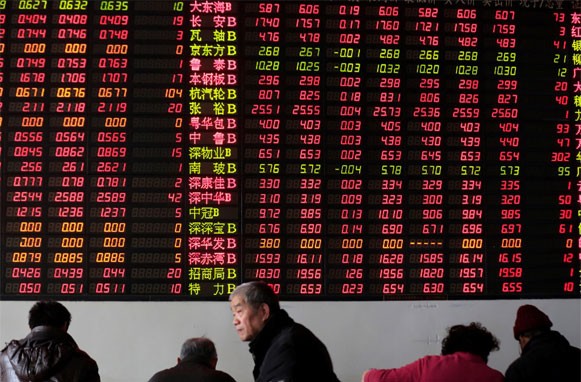With banks and analysts anticipating China's 2014 economic data in late January, many are foreseeing slower but higher quality growth for the country this year.
According to a research report by the People's Bank of China (PBOC), the world's second largest economy could see growth going down to 7.1 percent in 2015 from an expected 7.4 percent in 2014, with the slowdown being attributed mainly to a sluggish property sector.
Ma Jun, the chief economist of the PBOC's research division, also predicted that the real estate sector will also soften the country's fixed asset investment growth to 12.8 this year, which is a step down from the estimated expansion of 15.5 percent last year.
Real estate has been a critical driver in China's growth for most of the previous decade, causing housing prices and construction of new apartments to rise rapidly across the nation. But after reaching double-digit rates through most of 2013, housing prices started to falter later in the year. The downturn persisted in 2014, spreading throughout major and adversely affecting property investment and various industries.
Now past the "old normal" economic growth that featured rapid expansion and heavy reliance on export, investment and resources, China is pushing hard to adapt to the "new normal" of slower growth and increased focus on innovation.
At the Central Economic Work Conference held in December last year, Chinese leaders announced the adoption "of a proactive fiscal policy which should be stronger, and a prudent monetary policy, which should be more focused on striking a proper balance between being tight and loose." The conference did not set a target for 2015, but said that the country's policy makers will be "reasonable" in setting such goals.
In addition, the leaders gave assurance that China can deliver to its social and economic goals "relatively well," and that they believe a moderate slowdown in the economy is worth the price for a more balanced and sustainable growth in the long term.



























